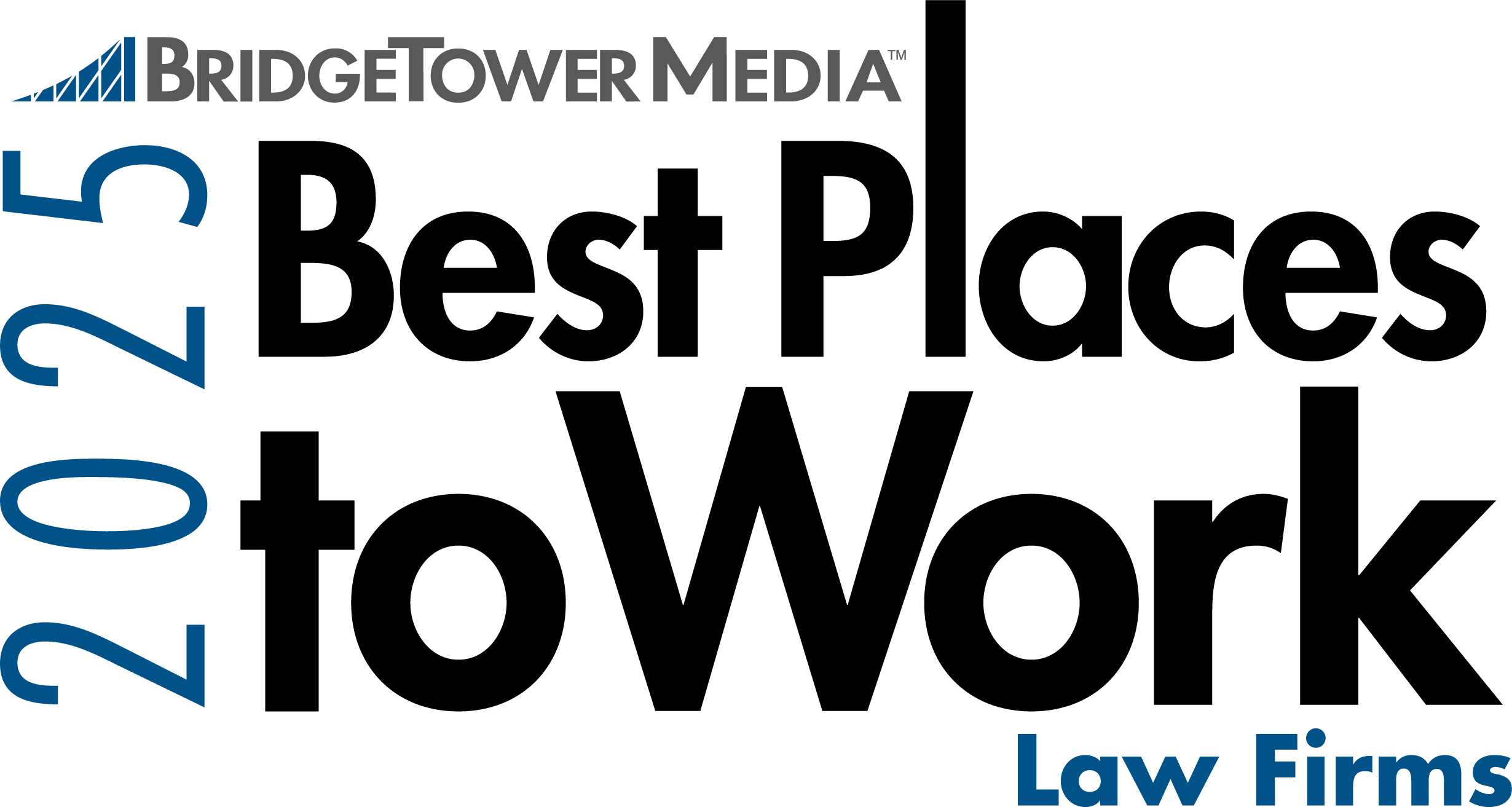Almost all commercial truck accidents are preventable. If one or more parties should have prevented the truck accident that injured you or cost a loved one their life, you can hold the at-fault party financially responsible for your losses. However, seeking justice as a truck accident victim is no easy feat, as the resulting legal claims may leave many complex obstacles in your way.
Too many people try to handle a truck accident claim alone, which can jeopardize their rights or their entire financial future. After such a traumatic accident, seek help from a seasoned truck accident attorney as soon as possible.
The right attorney can investigate your crash, determine fault, and help you seek full and fair financial compensation for your injuries.
Types of Commercial Truck Accidents
Commercial truck accidents can occur in many ways, resulting in different types of accidents and causing different injuries. Here are some common types of commercial truck accidents happening on U.S. roadways.
Rear-End Collisions
Rear-end collisions happen when a commercial truck strikes the vehicle in front of it from behind. These accidents can occur due to various factors, such as the truck driver’s following distance, speeding, distracted driving, or sudden stops by the vehicle in front.
Jackknife Accidents
A jackknife accident occurs when a commercial truck’s trailer swings out to the side, creating a V-shape with the truck cab. This typically happens when the truck’s wheels lose traction, causing the trailer to skid or swing out of control. Jackknife accidents often occur in slippery conditions or when truck drivers apply the brakes abruptly.
Rollover Accidents
Rollover accidents involve the truck tipping over onto its side or roof.
Many factors can contribute to them, such as:
- Speeding
- Taking a turn too sharply
- Overloading or misloading the cargo
- Making sudden maneuvers to avoid a collision
Rollover accidents often cause severe injuries and significant damage to other vehicles.
Underride Collisions
Underride collisions occur when a smaller vehicle collides with the rear or side of a commercial truck and slides underneath its trailer. This can happen if the truck suddenly stops, changes lanes without proper signaling, or fails to have appropriate reflective markings. Unfortunately, underride collisions may cause catastrophic injuries or fatalities.
Wide-Turn Accidents
Commercial trucks inherently have a larger turning radius, making wide turns necessary but challenging to execute, especially in congested traffic areas. When a truck makes a wide turn, it can collide with other vehicles in adjacent lanes or pedestrians in crosswalks.
T-Bone Accidents
Also known as side-impact or broadside collisions, T-bone accidents occur when the front of one vehicle crashes into the side of another, creating a T-shape. The size and weight of a commercial truck can cause particularly traumatic T-bone accidents. These accidents often happen at intersections or when a truck fails to yield the right of way.
Runaway Trailer Accidents
Runaway trailer accidents occur when a commercial truck’s trailer becomes disconnected from the cab and continues moving independently.
This can happen due to:
- Improper hitching
- Equipment failure
- Inadequate maintenance
Runaway trailers pose significant risks to other vehicles on the road.
Tire Blowouts
A tire blowout can cause a truck driver to lose control of the vehicle, leading to an accident. Factors such as worn-out tires, improper inflation, or road hazards can contribute to tire blowouts. When a tire blowout occurs, the sudden loss of control can result in the truck colliding with other vehicles or causing multi-vehicle accidents.
These are just a few examples of commercial truck accidents that can occur. Each accident is unique, and the circumstances will determine the cause and consequences. If you or a loved one was in a commercial truck accident, consult a well-versed truck accident lawyer as soon as possible to understand and exercise your rights.
Truck Accident Statistics
The agency in charge of establishing and enforcing commercial truck or common carrier regulations is the Federal Motor Carrier Safety Administration (FMCSA). The most recent crash data shows that 4,842 large trucks were involved in fatal accidents nationwide in one year.
The number of large trucks involved in injury-causing accidents was around 107,000. In addition, 327,000 large trucks were involved in property damage-only crashes – a 21 percent decrease from the previous year. Large trucks accounted for nine percent of all fatal vehicle crashes.
Further, when a collision occurs between a commercial truck and a passenger car, the victims in the car are more at risk of suffering severe and fatal injuries. According to the National Safety Council, around 68 percent of truck accident fatalities are occupants of other vehicles. Truck occupants accounted for 30 percent of the deaths, while nonoccupants accounted for two percent.
What Are the Causes of Commercial Truck Accidents?
Commercial truck accidents can have severe consequences due to the massive size and weight of these vehicles. Several factors can contribute to the causes of commercial truck accidents. Determining how a truck accident happened is often critical to determining fault for your damages.
Truck Driver Fatigue
Fatigue is a frequent factor in truck accidents throughout the U.S. Due to the nature of their jobs, truck drivers often face long hours and demanding schedules, leading to sleep deprivation and drowsy driving.
Regulations are in place to limit the number of hours a driver can operate a commercial vehicle without rest. Still, violations can occur too frequently, increasing the risk of severe and deadly accidents.
Distracted Driving
Distractions such as cell phone use, texting, eating, or using navigation systems can divert a truck driver’s attention from the road. With their size and weight, commercial trucks require careful handling and attention to the road, and any distraction can significantly increase the risk of accidents.
Impaired Driving
Driving under the influence of alcohol, drugs, or certain medications can impair a truck driver’s judgment, reaction time, and overall ability to operate the vehicle safely. Commercial drivers have stricter regulations regarding blood alcohol concentration (BAC) limits, but violations can still occur.
Speeding and Reckless Driving
Excessive speed and reckless driving behaviors, such as aggressive lane changes, tailgating, or failure to yield, can cause serious accidents. Commercial trucks take longer to stop and maneuver, making it crucial for drivers to adhere to speed limits and exercise caution on the roads.
Inadequate Vehicle Maintenance
Commercial trucks require regular maintenance and inspections to ensure their safe operation. Neglecting maintenance, such as faulty brakes, tire blowouts, or malfunctioning lights, can contribute to accidents. In these cases, the accident may be the fault of the truck driver or the carrier.
Improper Loading or Cargo Securement
Improperly loaded or unsecured cargo can lead to shifting weight, imbalance, or cargo spills, causing the driver to lose control of the vehicle. Commercial truck drivers, operators, and cargo loaders are responsible for ensuring that the cargo is loaded, secured, and distributed safely and properly.
Weather and Road Conditions
Adverse weather conditions, such as rain, snow, or fog, can make driving conditions hazardous, particularly for large commercial trucks. When weather and road conditions are less than ideal, truck drivers need to adjust their driving habits accordingly, for instance, by reducing their speeds and putting more space between them and the vehicle in front of them.
Poorly maintained roads, construction zones, or debris on the roadway can also increase the risk of accidents. Sometimes, if an accident results from these conditions, a government entity or contractor may have liability for the accident.
Lack of Training and Experience
Inexperienced or inadequately trained truck drivers may lack the necessary skills to handle the commercial vehicle’s unique challenges. Proper training and ongoing education are essential for safe driving practices. However, many truck driving companies fail to provide the training their drivers need to be safe on the road. Instead, they put their profit margins over innocent people’s safety.
You should note that identifying the specific cause of a commercial truck accident requires a thorough investigation by experts, including accident reconstruction specialists, and analysis of driver logs, maintenance records, and other relevant data.
If you suffered injuries in a commercial truck accident, consulting with an experienced attorney who handles truck accident cases is crucial. They can assess the details of the accident, gather evidence, and advocate for your rights to seek compensation for injuries, property damage, and other losses resulting from the accident.
Potential Liable Parties in Commercial Truck Crashes
Determining fault in commercial truck accidents can be a complex process and depends on the specific circumstances of the accident. Multiple parties involved in the operation and maintenance of the commercial truck might share fault.
You can hold many parties liable for your damages:
- The truck driver -The actions or negligence of the truck driver can constitute fault. You can hold a driver responsible for the accident for violating traffic laws or federal safety regulations, including for driving distracted, speeding, or intoxicated.
- Trucking company – You can hold the trucking company liable for the actions of its employees. If the company fails to screen and train the driver properly, imposes unrealistic schedules leading to driver fatigue, or neglects to maintain the vehicle, they may share in the fault.
- Vehicle maintenance provider – You can hold the party responsible for maintaining the truck accountable if the accident results from a mechanical failure or equipment malfunction. This can include maintenance contractors or the trucking company itself if they handle maintenance internally.
- Cargo loading company – If the accident happened due to improperly loaded or unsecured cargo, you can hold the company responsible for loading the cargo at fault. It’s their responsibility to ensure that the cargo is secured correctly and distributed to maintain stability during transportation.
- Manufacturers – In some cases, the fault may lie with the truck manufacturers or its components if a defect or malfunction contributed to the accident. This can include issues with brakes, tires, steering mechanisms, or other critical components.
- Other drivers – In certain situations, other drivers in the accident may bear some responsibility. Suppose a passenger vehicle driver contributed to the accident by, for example, cutting off the truck, making an unsafe maneuver, or driving recklessly. In that case, they may share in the fault.
Similar to identifying what caused a truck accident, fault determinization requires a thorough investigation, which may involve:
- Examining accident reports
- Collecting evidence
- Analyzing witness statements
- Reviewing electronic data from the truck’s systems
- Consulting with experts in accident reconstruction
Your Legal Rights After a Commercial Truck Accident
After suffering injuries in a commercial truck accident, you have certain legal rights that you can exercise to protect your interests.
First, you not only have the right to seek medical attention, but it’s in your best interest, both physically and legally. Your health and well-being should be a priority after an accident. You may seek immediate medical attention for your injuries. Additionally, always document your injuries and follow your healthcare provider’s recommended treatment plan.
If you believe the truck driver, trucking company, or other parties involved were at fault for the accident, you may file a personal injury claim. Such a claim seeks compensation for your injuries, medical expenses, pain and suffering, lost income, and other damages resulting from the accident.
Seeking legal representation is another right of truck accident victims. Seek legal representation from a knowledgeable truck accident attorney after an accident. Your attorney will protect your rights, navigate the legal process, gather evidence, negotiate with insurance companies, and advocate for your best interests.
It’s important to note that the specific rights and legal processes may vary depending on your jurisdiction. Consulting with an attorney familiar with your area’s laws will ensure you understand and exercise your rights appropriately.
Getting Legal Help After a Truck Accident

Phillip J. Barkett, Jr, Truck Accident Attorney
Remember, acting promptly is crucial in truck accident cases, as statutes of limitations often limit the time you have to file a claim. Contacting a personal injury lawyer as soon as possible after the accident will protect your rights and increase your chances of obtaining fair compensation.



